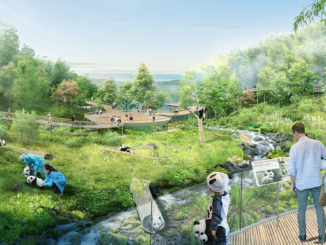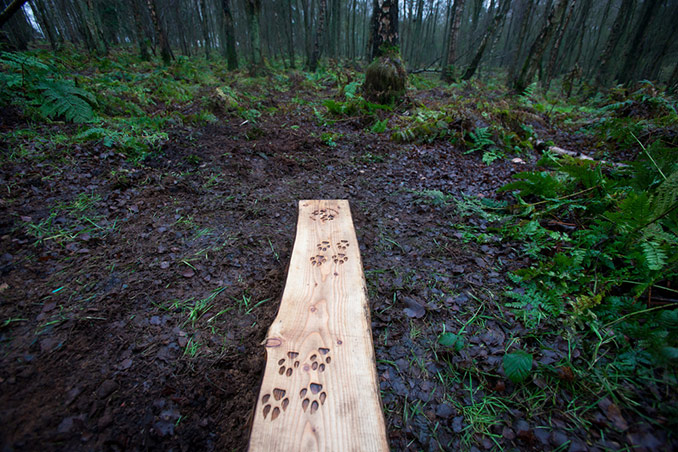
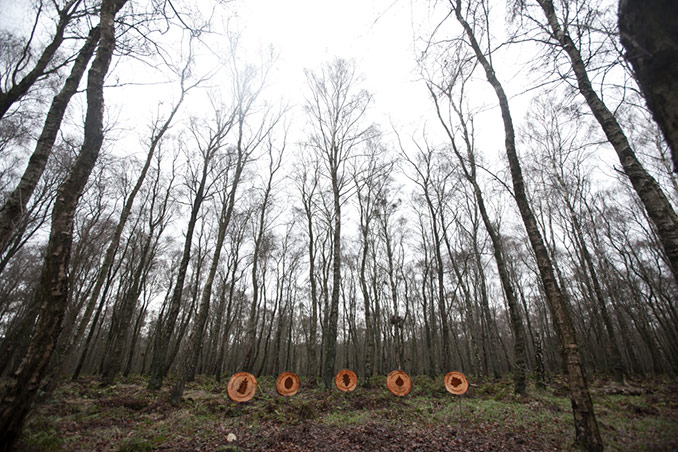
Calais Muir Woodland in Dunfermline is an ancient woodland, a woodland of old stories and mysteries. A woodland through which the old Kings of Scotland have travelled to get to Dunfermline Abbey, a woodland inhabited by mystical beings of Scottish folklore, a woodland so old, yet so young.
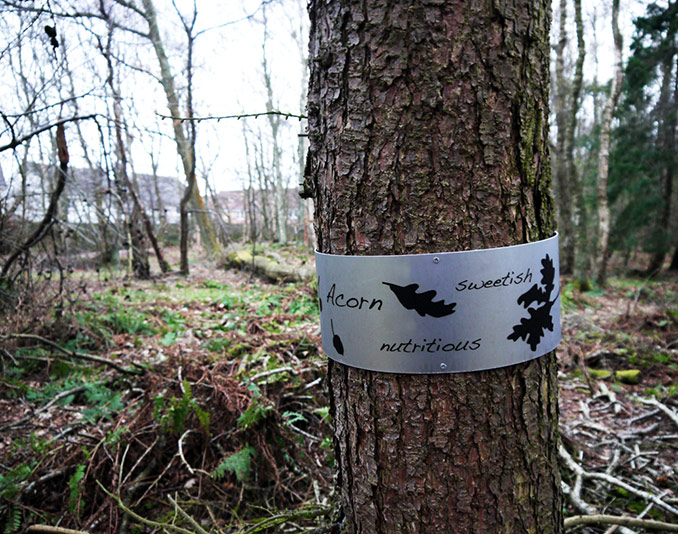
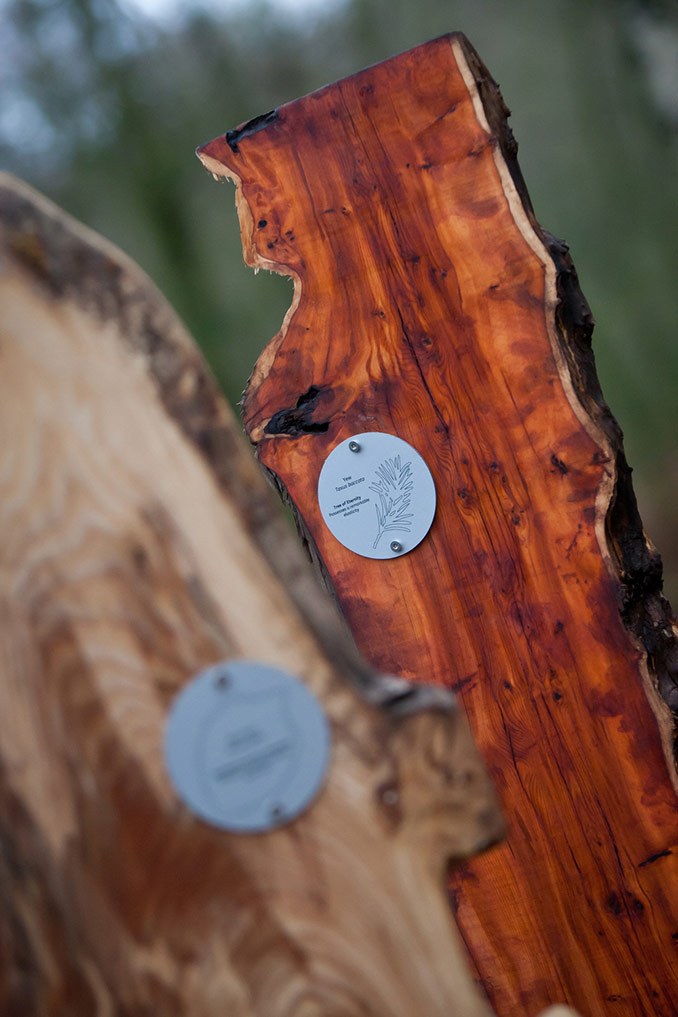
3 miles east of Calais Muir Woodland lies the town centre of Dunfermline. King Malcolm III made it his capital in the 11th century. For centuries the town developed around Dunfermline Palace, the seat of the Kings of Scotland until 1603 when the union of Scottish and English crowns took place. It’s only during the last two decades that the town experienced a significant expansion east, shifting the woodland’s position from the edge of town to the heart of newly established communities. Previously almost untouched, the woodland has now suddenly become the green heart in the midst of new developments – unprepared to deal with the acute rise of new users.
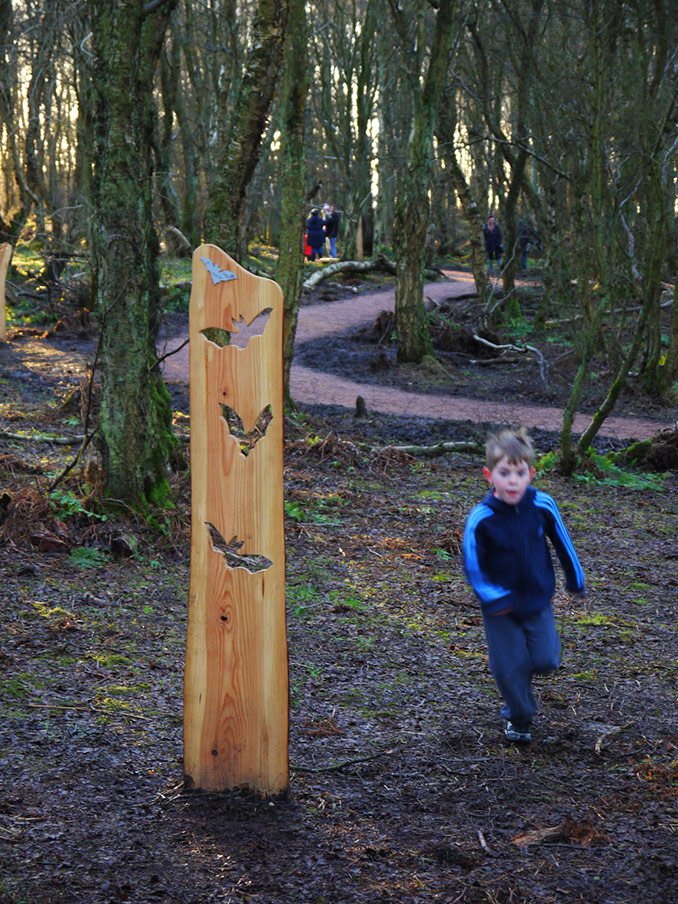
New pathways were installed to direct footfall and to make the woodland more accessible. In addition, a series of educational and art interventions engage regulars and visitors, children as well as grown-ups, sparking their imagination and inviting them to play with the materials, textures, and colours found in the woodland. As part of this, it was critical to retain the woodland’s unique and almost mystical character: to tell it’s story in an engaging and educational manner while simultaneously preparing for it’s new role.
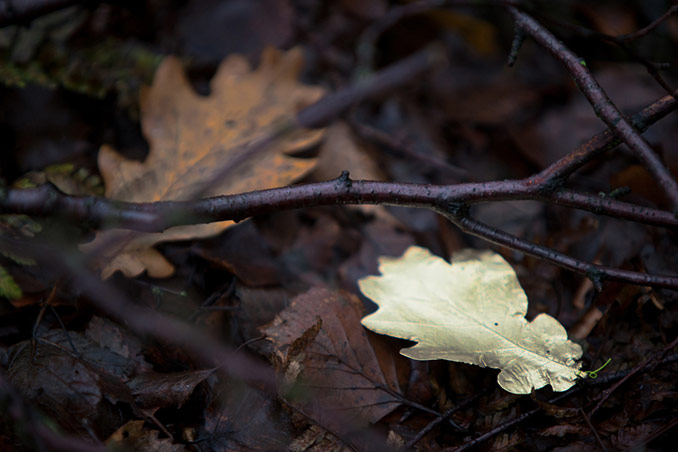
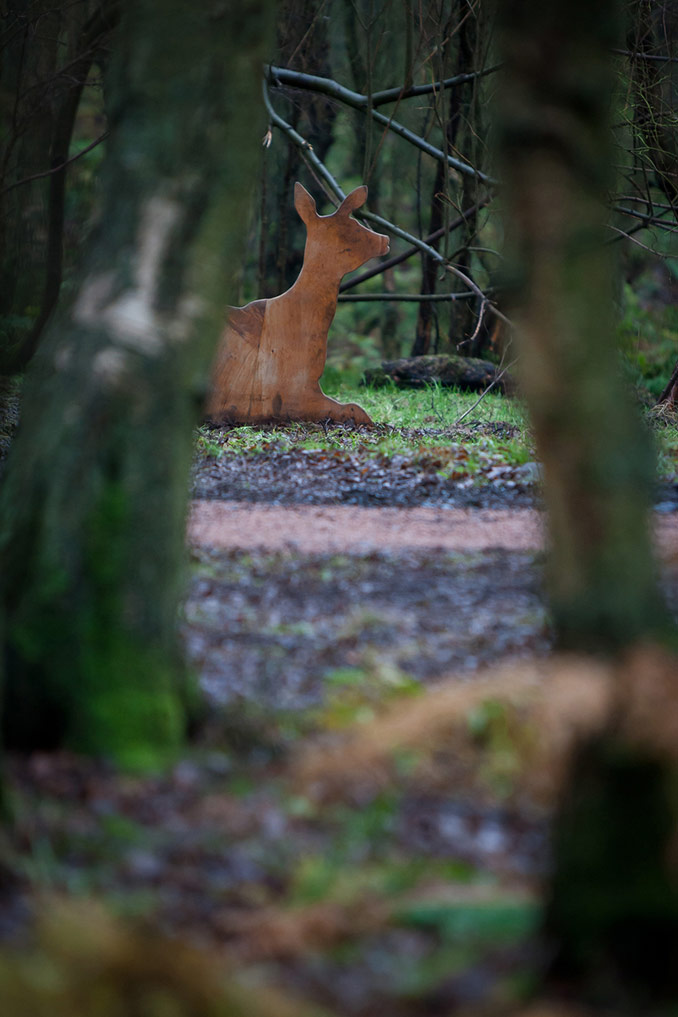
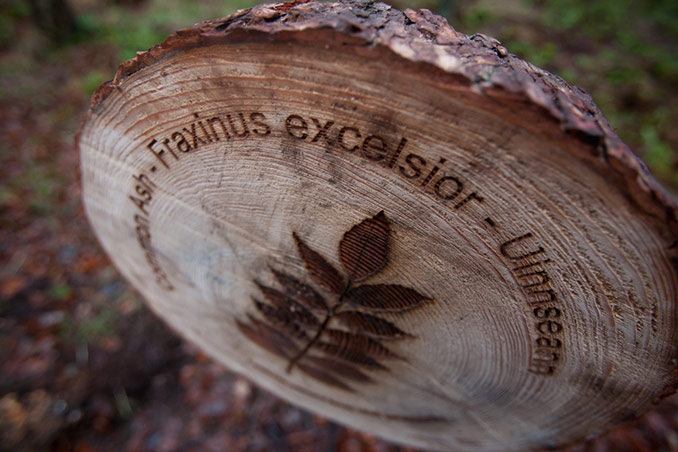
Most installations are of permanent nature featuring common animals roaming this woodland, showing the tracks they leave behind or the food they like to eat. They explain which tree species are forming our woodlands, what their leaves look like and what the different timbers feel, look and smell like. At every corner the installations invite and challenge the users to feel, touch, smell, taste and explore this woodland, to engage and get involved.
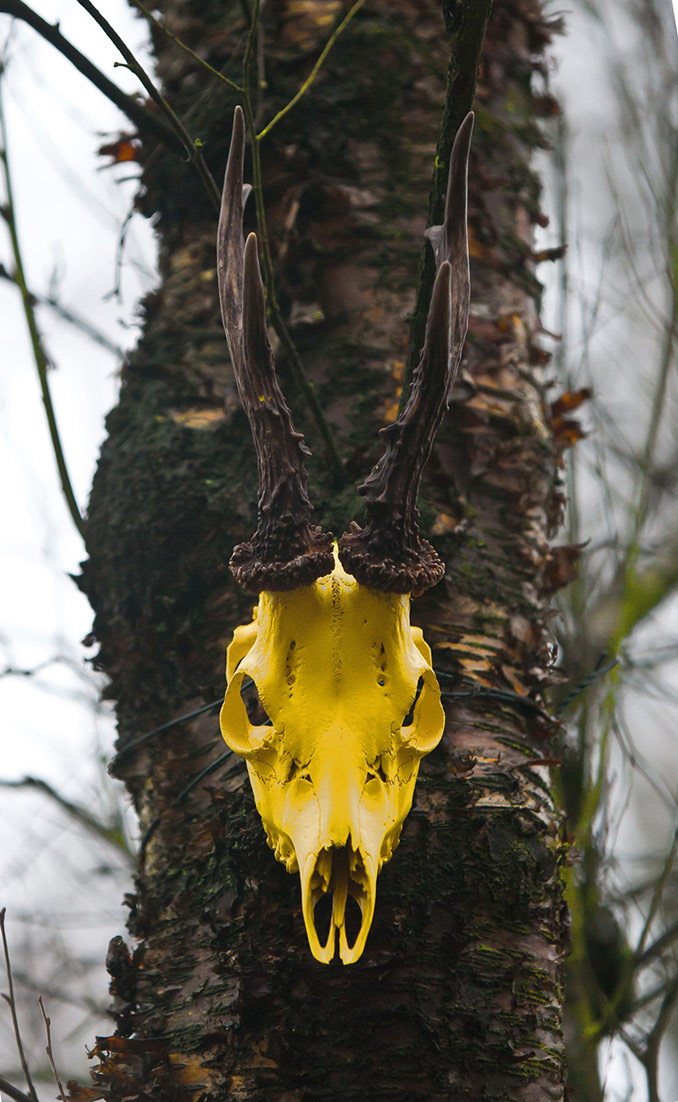
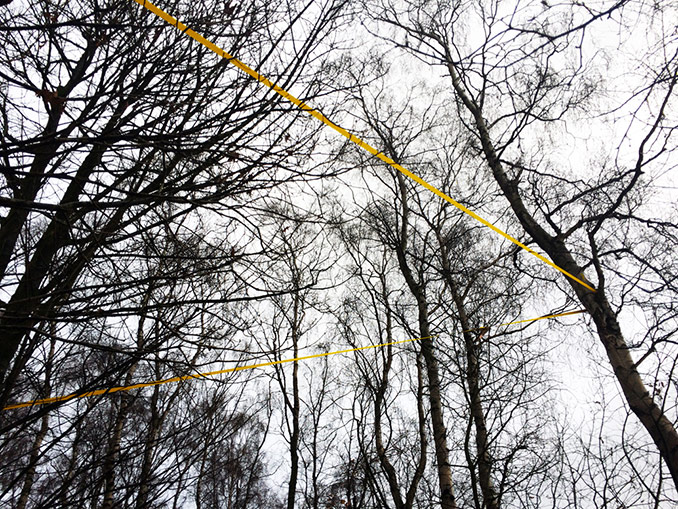
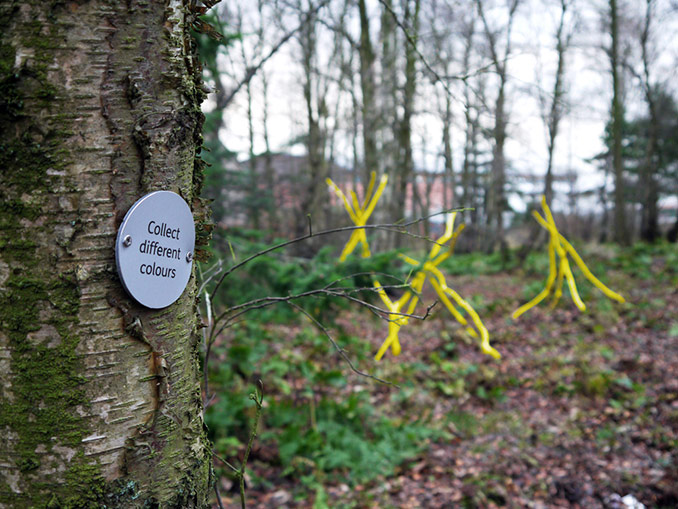
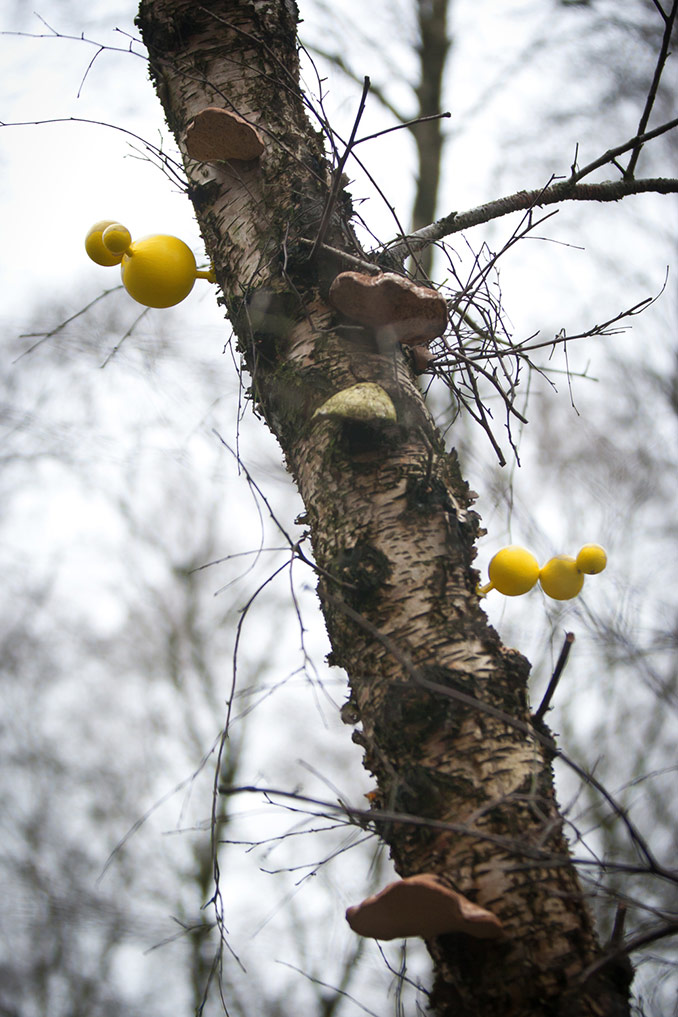
Scottish woodlands however, are not only inhabited by creatures that can be seen! Fairies, Goona, Hags and Giants roam through these woods. Trees and plants carry mythical powers. If one looks carefully traces of this world can be discovered. Yellow installations high up in the trees give clues and add a less tangible dimension. They bring some mystery back into our structured lives, encourage visitors to explore the less obvious and to let their imagination run free.
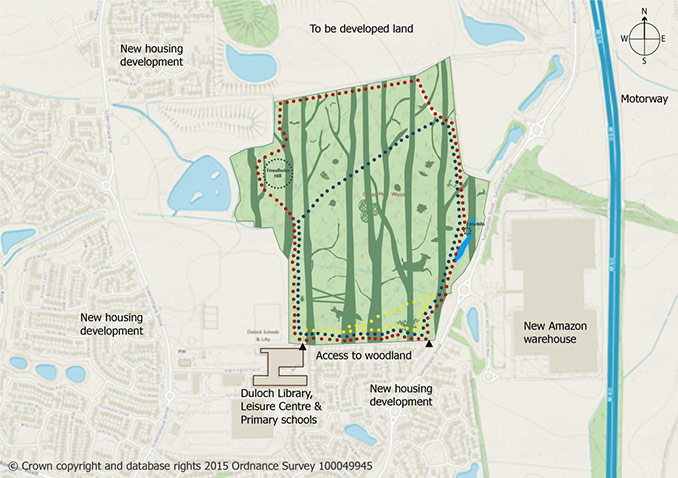
Fairies, Goona, Hags & Giants
Location | Dunfermline, Scotland
Completed | Dec 2015
Text credit | UrbanPioneers
Landscape Architects | UrbanPioneers
Image credits | As Noted
Client | Fife Coast and Countryside Trust


